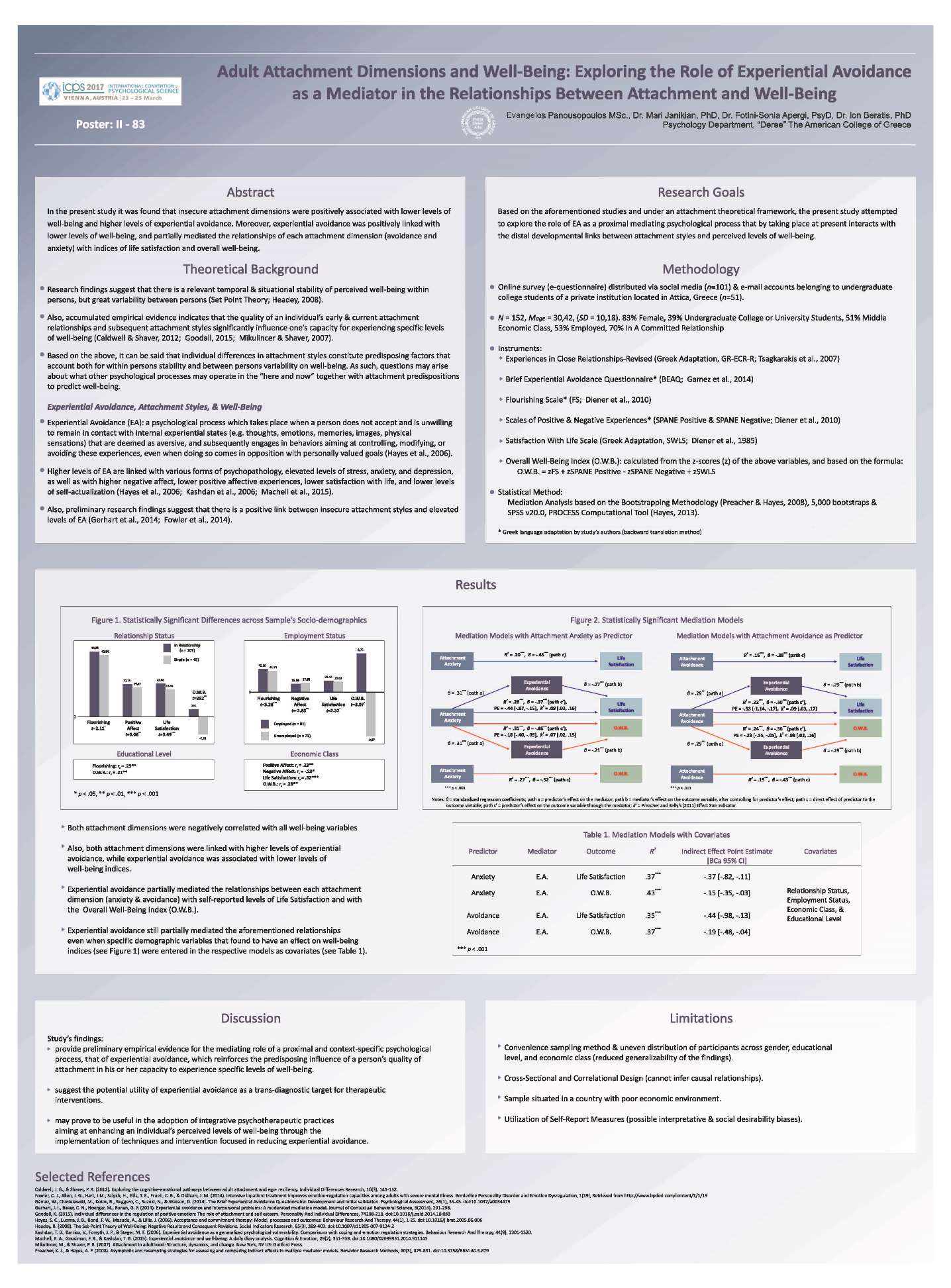Adult Attachment Dimensions and Well-Being

Panousopoulos E., MSc, Dr. Janikian, M., PhD, Dr. Apergi, F., PsyD, & Dr. Beratis I., PhD (2017). Adult Attachment Dimensions and Well-Being: Exploring the Role of Experiential Avoidance as a Mediator of the Relationship Between Attachment and Well-Being. 2nd International Convention of Psychological Science (ICPS), Vienna, Austria, 23-25 March, 2017 (poster presentation).
Abstract
In the present study it was found that insecure attachment dimensions were positively associated with lower levels of well-being and higher levels of experiential avoidance. Experiential avoidance was positively linked with lower levels of well-being, and partially mediated the relationships of each attachment dimensions with life satisfaction and overall well-being.
Supporting Summary
In the present study an examination of the relations between adult attachment dimensions, well-being, and the psychological construct of experiential avoidance was attempted. Previous research findings have consistently shown the influential role of a person’s attachment history as a distal developmental factor that heavily accounts for one’s dispositions towards experiencing certain levels of well-being. Based on these findings and drawing from an attachment perspective framework, the present study attempts to explore the role of experiential avoidance - a well-documented psychological process that is both a mechanism linked with negative psychological outcomes and a target for therapeutic interventions (Hayes et al., 1999) - as a proximal mediational factor in the relationships between attachment and well-being. Through the adoption of a quantitative methodological design, using self-repots instruments measuring adult attachment dimensions, experiential avoidance, and well-being among Greek participants (N = 152), and utilizing mediational statistical analyses based on the bootstrapping methodology (Preacher & Hayes, 2008) it was found that: (a) insecure attachment dimensions were positively associated with lower levels of well-being, (b) higher scores both on attachment-related avoidance and anxiety were associated with elevated levels of experiential avoidance, while increased scores on experiential avoidance were linked with lower levels of well-being, and (c) experiential avoidance partially mediated the relationships between each attachment dimension with life satisfaction and overall well-being. Study’s findings can be of importance for two main reasons. First, they provide preliminary evidence for experiential avoidance as a context-specific mediating process which strengthens the influence that one’s attachment history may exert on one’s capacity for experiencing well-being. Second, study’s findings may prove to be useful for integrative psychotherapeutic practices aiming at enhancing well-being, by assimilating therapeutic interventions and techniques that target experiential avoidance.

